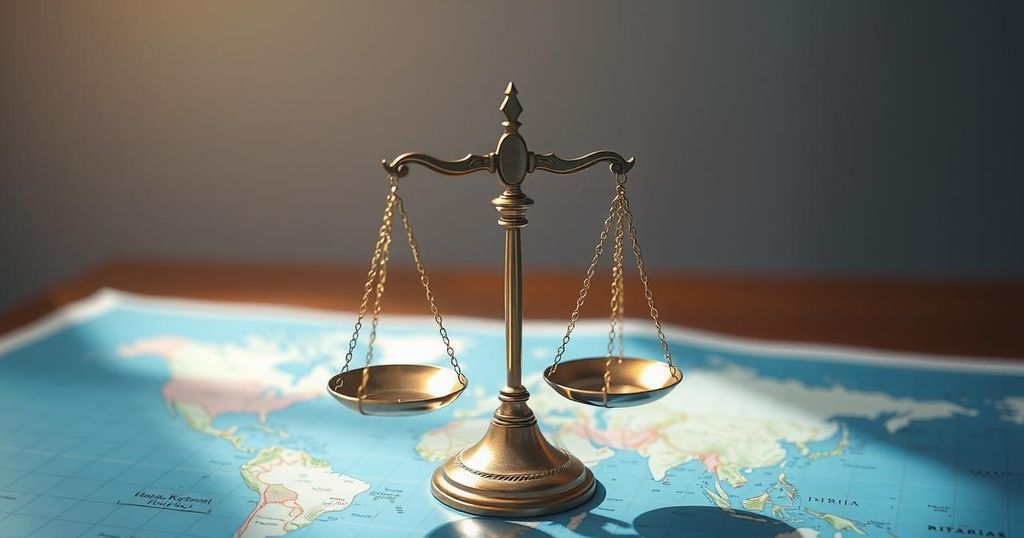Saudi authorities detained Egyptian citizen Ahmed Kamel on November 13, 2024, potentially facing extradition to Egypt, where he risks detention and torture. Human Rights Watch called for his immediate release, highlighting systemic abuses in both Saudi and Egyptian legal systems. Kamel’s participation in protests had led to his unjust sentencing in absentia, raising concerns about his safety if extradited. The organization emphasizes that returning him may violate international obligations against torture.
On November 13, 2024, Saudi authorities apprehended Ahmed Kamel, an Egyptian citizen, at a Jeddah police station on the basis of an alleged extradition request from Egypt. Kamel had been sentenced in absentia to life imprisonment in December 2021 in connection with peaceful protests that he participated in during 2014. Following his detention, Kamel’s family reported that he was informed by Saudi police of an issuance of an exit visa for him on December 12, 2024.
Human Rights Watch urged Saudi Arabia to release Kamel immediately and refrain from extraditing him to Egypt, citing significant concerns regarding human rights violations prevalent within the Egyptian justice system. Joey Shea, a researcher at Human Rights Watch, emphasized the danger Kamel faces, stating that returning him to Egypt exposes him to potential torture and unlawful detention.
On January 22, 2025, Kamel was moved to the al-Shumaisi detention center, an immigration facility, which raised fears of his imminent deportation. Saudi officials had summoned him to the police station without disclosing the specific reasons for his detention or the charges against him, as confirmed by a family member.
Contrary to claims from Saudi authorities regarding an Interpol request for Kamel’s extradition, Interpol later clarified that no data concerning him had been registered in their system. Despite several requests, Kamel’s legal representative has not received any official documentation detailing his case or the basis for his detention, which highlights the lack of transparency in his situation.
Kamel has a history of participating in protests, facing prior detainment in bondage conditions, and suffering from torture in 2014. His family revealed that he was shot on two occasions, resulting in ongoing health issues. Following his earlier arrest, he served one year in the military after his release and subsequently migrated to Saudi Arabia for work in 2015.
The charges against Kamel, which include incitement and participation in demonstrations, were levied unjustly in absentia. Human Rights Watch has documented systemic abuses in the Saudi criminal justice system and has previously criticized Egypt’s oppressive measures against dissent. They cautioned that Kamel would face significant risks if extradited, including violations of due process and potential torture.
The organization’s findings reveal a troubling trend of Egyptian nationals being persecuted in Saudi Arabia for their dissent against the Egyptian government. Kamel’s case exemplifies this phenomenon, where multiple individuals, including psychiatrist Sabri Shalabi, have faced severe repercussions for their beliefs.
Extraditing Kamel would contravene Saudi Arabia’s obligations under the United Nations Convention against Torture, which prohibits returning individuals to situations where they may face torture. Human Rights Watch firmly stated, “If returned to Egypt, Kamel could face grave due process violations and even torture,” urging Saudi Arabia to prioritize human rights by ceasing his extradition.
In conclusion, Ahmed Kamel remains at serious risk in Saudi Arabia, with impending extradition to Egypt that could endanger his life and well-being. The lack of transparency surrounding his detention and judicial processes raises concerns about human rights violations. Ethically, Saudi Arabia is urged to adhere to international standards and protect individuals facing persecution due to political beliefs. Adopting a rights-respecting stance is imperative for both the Saudi government and the wider international community’s credibility.
Original Source: www.hrw.org




